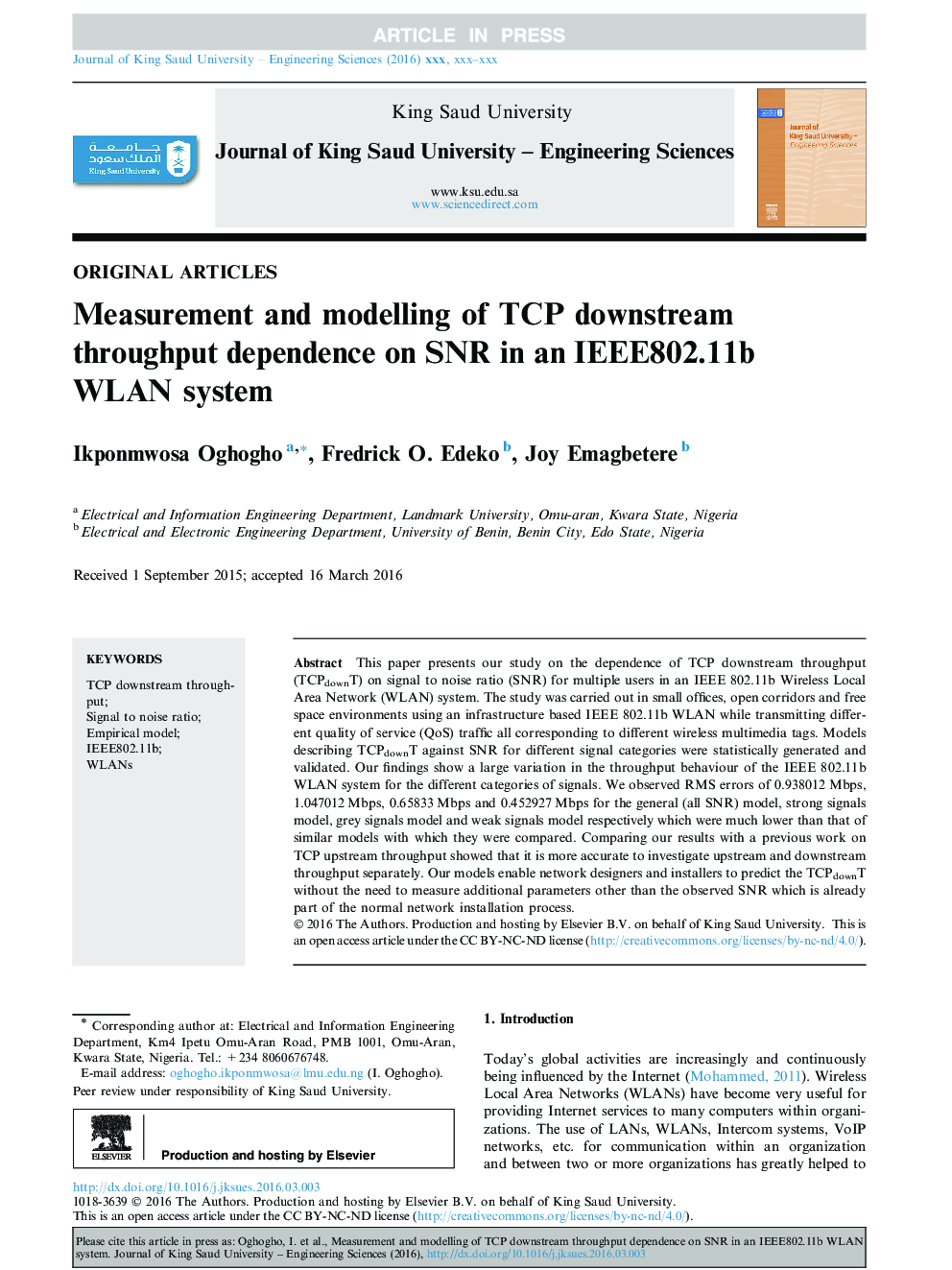| Article ID | Journal | Published Year | Pages | File Type |
|---|---|---|---|---|
| 7216551 | Journal of King Saud University - Engineering Sciences | 2018 | 7 Pages |
Abstract
This paper presents our study on the dependence of TCP downstream throughput (TCPdownT) on signal to noise ratio (SNR) for multiple users in an IEEE 802.11b Wireless Local Area Network (WLAN) system. The study was carried out in small offices, open corridors and free space environments using an infrastructure based IEEE 802.11b WLAN while transmitting different quality of service (QoS) traffic all corresponding to different wireless multimedia tags. Models describing TCPdownT against SNR for different signal categories were statistically generated and validated. Our findings show a large variation in the throughput behaviour of the IEEE 802.11b WLAN system for the different categories of signals. We observed RMS errors of 0.938012Â Mbps, 1.047012Â Mbps, 0.65833Â Mbps and 0.452927Â Mbps for the general (all SNR) model, strong signals model, grey signals model and weak signals model respectively which were much lower than that of similar models with which they were compared. Comparing our results with a previous work on TCP upstream throughput showed that it is more accurate to investigate upstream and downstream throughput separately. Our models enable network designers and installers to predict the TCPdownT without the need to measure additional parameters other than the observed SNR which is already part of the normal network installation process.
Related Topics
Physical Sciences and Engineering
Engineering
Engineering (General)
Authors
Ikponmwosa Oghogho, Fredrick O. Edeko, Joy Emagbetere,
